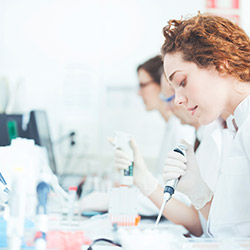Your allergy problems are diagnosed using a thorough history and physical in our office. This may also include a nasal endoscopy exam (this exam is performed by placing a small fiberoptic scope in the nose after numbing the nasal tissue with a spray. The exam is quick and painless), and you may be scheduled for allergy testing.
 Skin testing is preferable, as it is more sensitive to picking up mild to moderate allergies. Sometimes blood testing for allergies is also indicated.
Skin testing is preferable, as it is more sensitive to picking up mild to moderate allergies. Sometimes blood testing for allergies is also indicated.
Skin testing is a safe and fairly easy way for us to determine your allergies.
Skin tests use a concentrated liquid form of common allergens like pollen, mold, dust mites, animal dander, and foods. Once the allergen gets in your skin, it may trigger a small reaction, like a rash. Your skin will get irritated and may itch. This reaction is how we can tell you’re allergic to a substance. When you have an allergy, your immune system will make antibodies and set off chemicals to fight the unwelcome invader.
What Happens During Your Skin Test?
Hybrid test: We perform a hybrid test starting with a prick test on the skin of your back. First, the skin on your back will be cleaned with alcohol. We will mark and label areas on your skin with a pen. Then we will place the allergens in the skin with a small prick (It’s not a shot, and it won’t make you bleed.)
Intradermal test: Depending on your skin reaction during the prick test, we may proceed with another test on your upper arm. A small amount of allergen may be injected just under your skin, similar to a tuberculosis test.
Plan for an hour-long appointment. The pricking part of scratch and intradermal tests takes about 5 to 10 minutes each. Then you’ll wait for about 15 minutes after to see how your skin reacts.
How to Get Ready for a Test
Please let us know all medicines you’re taking, including over-the-counter products. Some drugs can interfere with the results, so we will give you a list of medicines to avoid before the test. Since allergy medicines, such as OTC antihistamines, stop allergic reactions, you shouldn’t take them for a few days before your test. You need to let your body react to the allergens in the test.
Is It Safe?
A skin test may be mildly irritating, but most people say it doesn’t hurt. Although you’re coming into contact with things you could be allergic to, they’re very small amounts. An allergy skin test is safe when done the right way. Whole-body reactions to skin testing are very rare, but are treatable.
Schedule an Appointment
If you would like to schedule an appointment with the Tennessee Sinus and Snoring Center please click on the link below.
